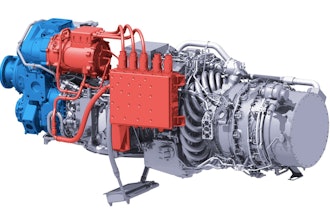The developer of a two-seat flying car recently tested a larger prototype that company officials hope will finally help realize the potential of urban air mobility.
Lilium famously pioneered a vertical takeoff and landing aircraft and took it for a debut flight in 2017. This month, the company, founded by engineers from the Technical University of Munich, unveiled a five-seat aircraft and showed footage of it briefly lifting off and touching back down.
Eventually, the company intends for the design’s 36 all-electric engines to allow it, once airborne, to cruise at a top speed of 185 miles per hour at a range of about that same distance.
Lilium officials said a fixed-wing design enables the aircraft to travel horizontally without using much energy — unlike drone-like designs that need to generate more lift.
The air taxi is controlled remotely from the ground and features a simple design without a tail, rudder, propellers or gearbox. It includes just one moving part in the engine and offers passengers panoramic windows and gull-wing doors.
Lilium hopes that, once certified and moved into mass production, users will be able to use a mobile app to find a nearby landing pad, then travel across a city or region at a comparable price to a conventional taxi.
The company expects to begin trials in several locations with a goal of operating in cities around the world by 2025.
German Startup Unveils Air Taxi
Lilium followed up a two-seat prototype with a five-seat design intended to serve as a template for mass production and realistic urban air travel.
May 20, 2019
Latest in Aerospace
Boeing Workers Reject Offer, Extending Strike at 3 Plants
September 12, 2025
Boeing Opens New Engineering Center at Florida Research Park
September 12, 2025






















